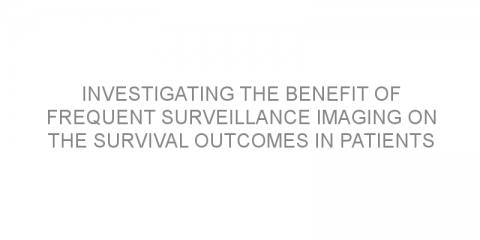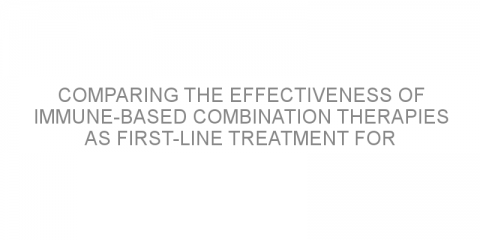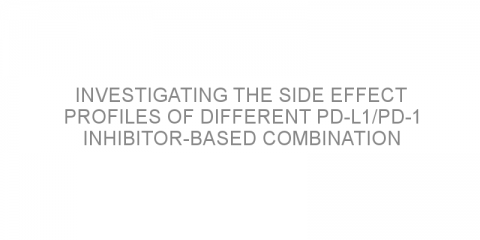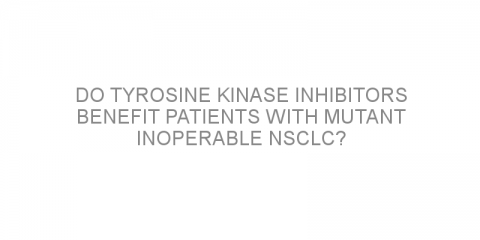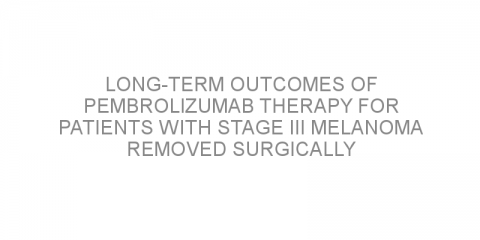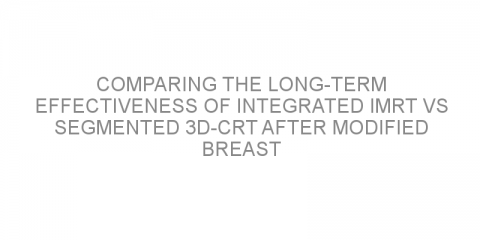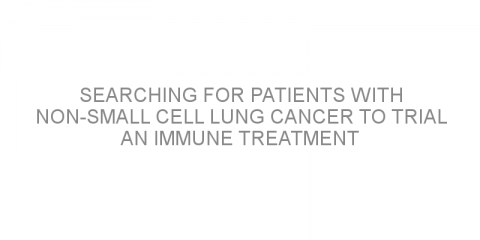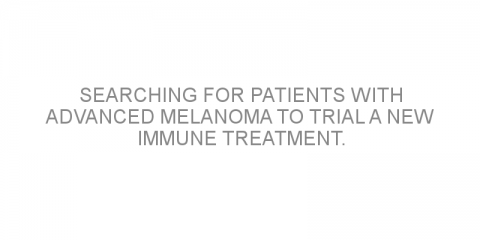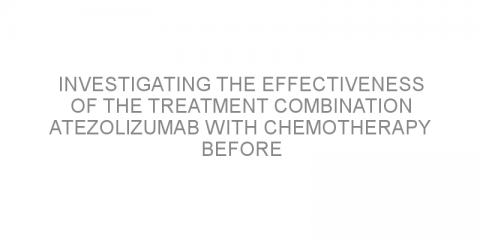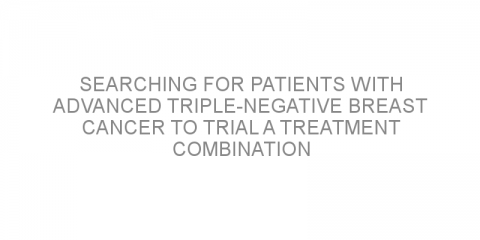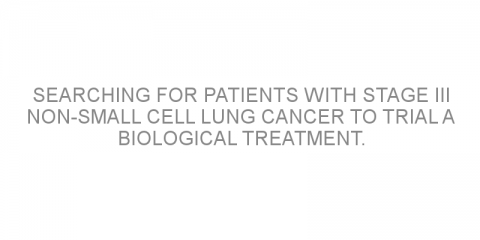In a nutshell This study investigated the benefit of frequent surveillance imaging on the survival outcomes in patients with resected stage III melanoma. The data showed that patients who underwent less frequent imaging (12-monthly) had better outcomes than those who underwent more frequent imaging (3- to 4-monthly). Some background Melanoma is a...
Read MoreCurrent stage-Stage III Posts on Medivizor
Comparing the effectiveness of immune-based combination therapies as first-line treatment for advanced non-small cell lung cancer.
In a nutshell This study compared the effectiveness of immune-based combination therapies as first-line treatment for advanced non-small-cell lung cancer (NSCLC). The data showed that immunotherapies plus chemotherapy combination was the best treatment for improving overall survival whereas, immunotherapy plus anti-angiogenic therapy plus chemotherapy...
Read MoreInvestigating the side effect profiles of different PD-L1/PD-1 inhibitor-based combination therapies.
In a nutshell This study investigated the side effect profiles of different PD-1/PD-L1 inhibitor-based combination therapies. The data showed that PD-1/PD-L1 inhibitors in combination with chemotherapy were associated with a higher risk of treatment-related side effects than with targeted therapy or immunotherapy combinations. Some background...
Read MoreDo tyrosine kinase inhibitors benefit patients with mutant inoperable NSCLC?
In a nutshell This study evaluated whether patients with unresectable non-small-cell lung cancer (NSCLC) having genetic mutations could benefit from first-line treatment with tyrosine kinase inhibitor (TKI) therapy. The data showed that TKIs could be a good option for these patients. Some background NSCLC is the most common form of lung cancer....
Read MoreLong-term outcomes of pembrolizumab therapy for patients with stage III melanoma removed surgically
In a nutshell The aim of this study was to investigate the long-term safety and effectiveness of pembrolizumab (Keytruda) for patients with stage III melanoma that was surgically removed. The study found that patients treated with pembrolizumab were more likely to have an improved outcome. Some background Melanoma is one of the most...
Read MoreComparing the long-term effectiveness of integrated IMRT vs segmented 3D-CRT after modified breast removal surgery in breast cancer patients
In a nutshell This study compared the long-term effectiveness of integrated intensity-modulated radiation therapy (IMRT) and segmented 3D-conventional radiotherapy (3D-CRT) following breast-removal surgery (radical mastectomy) in patients with breast cancer (BC). The data showed that integrated IMRT reduced the recurrence rate in the long-term with...
Read MoreIrinotecan combined with capecitabine-based chemoradiotherapy before surgery improves the outcomes of patients with rectal cancer
In a nutshell This study investigated the effectiveness of treatment with irinotecan (Camptosar) combined with capecitabine (Xeloda) chemotherapy (ICC) before rectal cancer surgery. Researchers suggested that this combined therapy significantly improved the treatment outcomes in these patients. Some background Rectal cancer is a common...
Read MoreSearching for patients with non-small cell lung cancer to trial an immune treatment
In a nutshell This trial is being carried out to examine the effectiveness of a new immune therapy, zimberelimab, alone or in combination with other immune therapies (domvanalimab and etrumadenant) in patients with PD-L1 positive non-small cell lung cancer (NSCLC). The main outcomes to be measured in this trial is the response rate and survival...
Read MoreSearching for patients with advanced melanoma to trial a new immune treatment.
In a nutshell This trial is looking at the effectiveness, safety, and tolerability of ladiratuzumab vedotin (LV) in patients with advanced solid tumors, including melanoma. The main outcome to be measured in this trial is the response rate to the new drug. The details Advanced tumors have spread from the organ where they originated....
Read MoreInvestigating the effectiveness of the treatment combination atezolizumab with chemotherapy before surgery for early triple negative breast cancer
In a nutshell This study investigated the effectiveness and safety of atezolizumab (Tecentriq) as an addition to chemotherapy before surgery for patients with early-stage triple-negative breast cancer (TNBC). The data showed that the combination is effective in improving treatment response in these patients. Some background...
Read MoreSearching for patients with advanced triple-negative breast cancer to trial a treatment combination
In a nutshell This trial is aiming to examine the effectiveness of ipatasertib in combination with atezolizumab (Tecentriq) and paclitaxel (Taxol) for the treatment of advanced triple-negative breast cancer (TNBC) that cannot be surgically removed. The main outcomes to be measured in this trial is survival without progression of the disease and...
Read MoreSearching for patients with stage III non-small cell lung cancer to trial a biological treatment.
In a nutshell This trial is aiming to examine the effectiveness and safety of atezolizumab (Tecentriq) and tiragolumab compared to durvalumab (Imfinzi) in stage III non-small-cell lung cancer (NSCLC) that cannot be surgically removed and has previously been treated with concurrent (at the same time) platinum-based chemoradiation therapy (CRT)....
Read More
